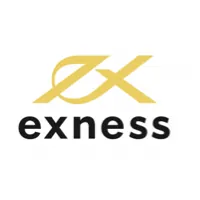CMA, Inketho Yombuso ka Curaçao kanye neSint Maarten, CySEC +5 kancane
Best Forex brokers with CNH accounts
Before we delve into Forex brokers that offer CNH accounts, let's clarify the difference between Renminbi (RMB) and CNH from CNY or Chinese Yuan. The renminbi (RMB) serves as the official currency of the People’s Republic of China, while Yuan represents the unit of currency within the renminbi system.
There exist two types of renminbi/Yuan: CNY and CNH. CNY pertains to the Chinese yuan traded in the onshore market of China, whereas CNH refers to the Chinese yuan traded in the offshore market.
To put it simply, 1 CNH is equivalent to 1 CNY. CNY is regulated by the People’s Bank of China and the State Administration of Foreign Exchange, functioning as a fixed currency. On the other hand, CNH has a free-floating exchange rate that the market determines, allowing unrestricted trading. This means traders can freely engage in trading CNH-denominated pairs using Forex brokers offering CNH fx trading accounts, which helps reduce conversion fees and transaction costs.
It is essential to recognize that CNY is exclusively accessible to residents of Mainland China, while CNH is available to both residents and non-residents of Hong Kong and certain Mainland China residents. The offshore market, where CNH is traded, encompasses locations outside of Mainland China, with Hong Kong being a significant participant in this market. As a result, CNH is freely traded in global currency markets, and its price is influenced by market forces.
MT4MT5ukukopishaithuluzi eliphakathi
Izaziso
ASIC, CySEC, FSA Seychelles +1 kancane
I-platforms
MT4, MT5, I-TradingView +1 kancane
MT4MT5Ulwazi elikhupile kakhuluukukopishaithuluzi eliphakathiPAMMSTP
Izaziso
CySEC, FSA Seychelles, VFSC
I-platforms
MT4, MT5
Hong Kong boasts a well-established regulatory framework for financial services, including forex broker regulation. The Securities and Futures Commission (SFC) is the primary authority responsible for overseeing the financial industry in the region, and they are known for its strict regulatory practices. Hence, Forex brokers with CNH accounts must comply with the rules and regulations set forth by the SFC. Consequently, the maximum leverage allowed for major FX pairs is limited to 1:20, and for minors and exotics, it's set at 1:10. This means traders who wish to engage in CNH pairs will need more trading capital to do so reasonably.
For those seeking to reduce their trading costs and work with reputable brokers that offer tight spreads and are considered safe, forex brokers with yuan accounts are a solid choice. Brokers targeting the Asian markets typically provide better trading terms, which can make a significant difference in achieving profitability when trading on CNH fx accounts.
It's worth noting that while CNY is a fixed currency, CNH presents traders with numerous opportunities as its exchange rates are directly affected by market forces like supply and demand. A compelling reason to opt for CNH is its 1:1 conversion rate back to CNY, making it more cost-effective and ultimately impacting the trader's overall profitability.
Overall to get the maximum convenience and reduced trading costs traders who want to trade CNH should opt for FX brokers that offer accounts in yuan.


